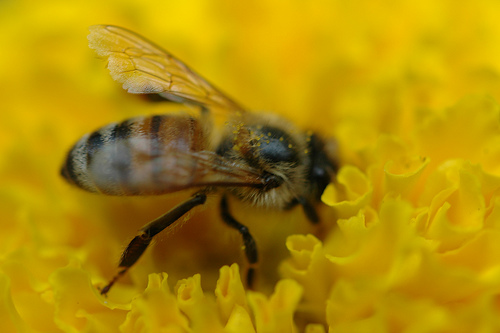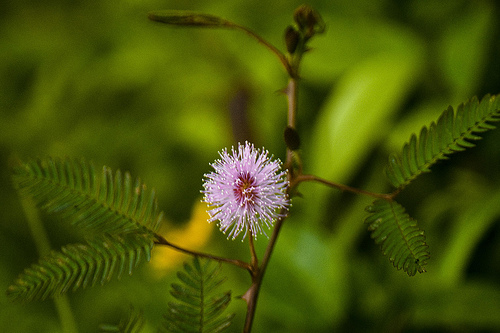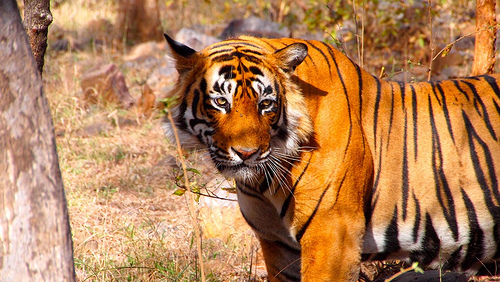If you thoughts only tigers were in danger in India forests, think again. Not even the shy sloth bears have been spared of man’s greed and lust! The recent incidences of poaching in Madhya Pradesh state of central India of male sloth bears for their reproductive organs and gall bladders (which are used as key ingredients in aphrodisiacs) stand witness to man’s impunity and indiscriminate exploitation of our planet’s endangered wildlife. An alarmed Madhya Pradesh forest department has therefore constituted a special investigation team (SIT) to probe the role of an international syndicate allegedly involved in smuggling the bears’ organs to international as well as domestic markets, where they fetch a very high price.
Five sloth bear carcasses recovered by the state forest department in the recent past from different parts of the state were missing reproductive organs and claws that had been ‘skillfully’ chopped off from the unfortunate victims. Forest officials said that it was very clear than the poaching cases involved professionals and these were not natural deaths.
While two of the bear carcasses were found near the buffer zone of Kanha Tiger Reserve in West Mandla district, the other three were recovered from Betul, Chhindwara, and Burhanpur districts.
Speaking about the SIT, Chief Wildlife Warden of the state, Narendra Kumar, informed that the department had appointed five different officers to investigate each of the five cases.
“Sloth bears are equally threatened species. We have got fresh clues about a gang involved in poaching, and different teams are working on it,” said Kumar.
Led by the Assistant Conservator of Forests, RiteshSirothia, the SIT has already managed to nab two poachers in connection to the sloth bear recently killed in the Chhindwara region.
“Efforts are on to crack the poaching network,”said Sirothia on a positive note.
Why Sloth Bears Are Vulnerable
The sloth bear (Melursus ursinusis) is a Schedule I species under the Wildlife Protection Act of India,1972. These species are to be provided absolute protection and offences under this schedule are to be given the highest penalty. The IUCN Red List lists the species as vulnerable, and it is also among the four Asian bear species (out of five)whose international commercial trade has been banned under the Convention on International Trade in Endangered Species of Wild Fauna and Flora (CITES).
While the reproductive organs of the sloth bear are extensively used as sex stimulants, they also find medical applications, particularly in treatment of cancer, asthma, pain, burns, and sinusitis as well as a tonic to prevent liver damage. Bears are also sought after for their gall bladders as they are the only mammals that produce significant amounts of the bile acid – tauroursodeoxycholic (UDCA), which has a high demand in China, Japan, and South Korea.
“The bile within the bear’s gall bladder exceeds even the cost of narcotics, and hence the high demand for its gall bladder,” said a forest official.
According to a wildlife activist, bears were never on the priority list of the Madhya Pradesh forest department as forest officers were mainly concerned with protecting the state’s tigers. However, things changed in 2012 when the forest department advised the state government to allow the Central Bureau of Investigation (CBI) to investigate the poaching of two sloth bears in the Panna Tiger Reserve along with ongoing investigations into missing tigers.
More Related Stories,
Orphaned Bear Cub Released into the Wild in Assam
Speeding Vehicles Bring Early Death to Sloth Bears
Himalayan Brown Bear Losing Home
Image via cc/Flickr by Marieke







2 thoughts on “Sloth Bears Get More Protection in Madhya Pradesh”